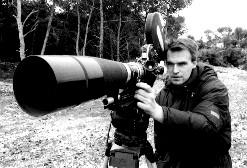
Much of the discussion of the film has had to do with its political orientation, as an instance of Croatian artists examining war crimes committed by Croats. Drax points out that it was controversial for that reason even while it was being filmed. I like the description of the film by Mima Simić and Iva Radat as «carefully treading the minefield of responsibility and emphasizing the humanity of both sides.» This is the «crime story» of the film, not much of a mystery in the details: a botched bombing lands a group of reservists in trouble. As the effort to cover it up comes to involve a greater number of institutions, the emotional ties between the participants break it apart.
The author of the novel on which the film is based is more modest about its political implications, though. Jurica Pavičić characterizes it as a «description of the social, mental and whatever other kind of reality there is here.» This is the level on which the film really succeeds. A team of outstanding actors subtly shows the conflicting pressures that work on the characters, refusing to let the «good» ones be overly good, the «bad» ones be one-dimensionally bad, or any of the familiar stories about war and ethnicity take front stage. The worst ones find themselves paralyzed by their own doubts and by guilt, and the best are overpowered by their own weaknesses. The honesty and complexity of the story is foreshadowed in the opening sequence, showing different sets of cars heading in different directions through Karlovac, each of them with a purpose connected to that of the others, but with their drivers unaware of this and never noticing one another. There are critics (like Jakov Kosanović in Slobodna Dalmacija) who see the final scene as over the top and too formulaic for the narrative. Without giving anything away to the people who have not seen the film, I would disagree — its symbolism suggests that easy conclusions cost an arm and a leg.
I am inclined to agree with Andjelo Jurkas who says that that the film «functions perfectly» The film did get a review in the Boston Globe which isn't much, but is mildly amusing for its overly literal translations. Pamela Biénbozas wrote an interesting observation of the film's psychological dimensions for FIPRESCI. For a review from someone who didn't like it, try Jesus Quintana. Have a look at Dnevnik's interview and Cross Radio's interview with Brešan if you like. For a nice overview of recent films from the region, this analysis by Andrew James Horton may be interesting.
2 comments:
This letters thingie is a little hard on people with bad eyesight, but I understand the necessity.
I just get obscene with spammers. I tell them where to 'mars' if you know what I mean and I think you do.
I think it takes great courage for anyone in Croatia to examine war crimes committed by Croats.
My apologies for the letters business. It's annoying to me too.
I do think that the film is courageous, although Bresan has his great popularity to shield him. But I also appreciate the way that the film refuses to reduce the story to national categories. The older brother who carries the ending, Kreso, is just as "national" as anyone else, but is also a stolid decent type -- whose main weakness is his indulgence of the killer, his sadistic younger brother Josko. The war provides a context, probably necessary, but is also presented as somehow incidental, somehow instrumental. My feeling is that this is a good picture of how a lot of crimes really happened. The publicity literature that MFA distributed (can't find it right now) had a nice quotation from Bresan saying that as a director it was not so important for him to be Croatian, but very important to be honest.
Post a Comment